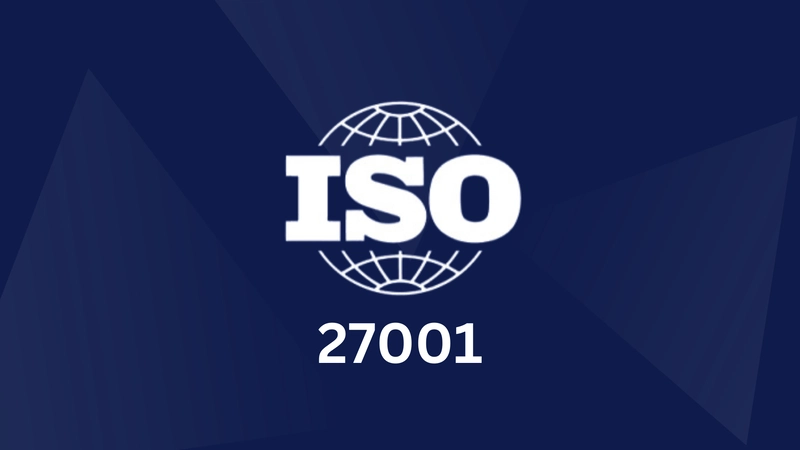Here’s what ISO 27001 Is – and Why You Should Care About Your Data Security
So, you want to keep your data safe and steer clear of expensive mistakes? Understanding ISO 27001 is honestly a pretty smart move. ISO 27001 is an international standard that helps you protect your sensitive information from cyber threats and internal slip-ups.
It lays out clear rules for managing security risks, which helps you build trust with customers and partners. You might think ISO 27001 is just for the big guys, but nope—it works for any organization, no matter your size or industry.
Meeting this standard can open up new business opportunities. It also makes it easier to follow other security rules later on.
By following ISO 27001, you lower your chances of data breaches and avoid those annoying penalties that come from sloppy security. Plus, since your system already meets trusted global guidelines, you won’t get stuck with endless audits.
Understanding ISO 27001
ISO 27001 helps you protect your information by spelling out clear rules for security management. It covers what you need to do and why it matters if you want to keep your data safe.
Definition and Scope
ISO 27001 is an international standard for managing information security. Basically, it’s designed to help you keep your organization’s important data safe from things like hacking, loss, or even theft.
This standard applies to businesses of any size and type. Whether you’re running a tiny startup or a massive company, you can use ISO 27001 to manage risks tied to your information.
It covers all sorts of sensitive info: customer details, financial records, intellectual property—the whole nine yards. The main goal? Protect the confidentiality, integrity, and availability of your data.
Key Principles
At the heart of ISO 27001 is risk management. You figure out the security risks your organization faces and decide how you’ll tackle them.
The standard encourages ongoing improvement. You don’t just set up controls once and forget about them—you keep checking and tweaking as things change.
Another big principle is leadership commitment. Your management team really needs to get involved and back up security policies and practices.
Documentation matters too. You’ll keep detailed records to make sure everyone’s following the security processes—and so you can prove it if anyone asks.
Standards and Requirements
If you want ISO 27001 certification, there are some specific requirements to hit. You’ll need to set security policies, assign responsibilities, and run regular risk assessments—kind of like a security to-do list.
After you spot your risks, you put controls in place. That could mean access restrictions, using encryption, or giving your staff some security training (honestly, even a quick lunch-and-learn can help).
You also need to keep an eye on things, so you catch problems early. And, you’ve got to plan for incidents, so your team doesn’t freeze if there’s a breach—think of it as your “break glass in case of emergency” plan.
Finally, there’s the audit process. You’ll do both internal checks and get external reviews to make sure your system actually meets ISO 27001 standards.
Why ISO 27001 Matters for You
ISO 27001 helps you build solid information security practices that actually protect your data and business. It boosts your ability to handle risks, builds trust with clients, and can set you apart from the competition.
Benefits for Organizations
When you follow ISO 27001, you end up with a clear system to protect sensitive information. This lowers the chance of data breaches and keeps both customer and company data safe.
The certification also proves you meet a global standard—sort of like having a badge that says, “Yep, we take security seriously.”
This helps you stay on the right side of data laws and regulations, which can save you from fines and legal headaches.
Business Impact
ISO 27001 can actually make your day-to-day work smoother. When you implement its requirements, your team gets better at managing data and security tasks—no more guessing who’s responsible for what.
It builds trust with customers and business partners because it shows you handle information carefully and securely. People like knowing their data isn’t just floating around out there.
It also supports your business continuity. If something unexpected happens, you’ll be way more prepared to respond and keep things running.
Risk Management Advantages
With ISO 27001, you get a practical way to spot and manage risks to your information. It helps you find threats early and cut down their impact—kind of like putting up a fence before you get a break-in.
You get to develop controls that actually fit your business, so you’re not wasting time on stuff that doesn’t matter. Instead, you focus on what’s really important and protect what matters most.
Competitive Edge Through Certification
Getting ISO 27001 certified? That can really put you ahead of folks who haven’t bothered with it.
It tells your customers and partners, “Hey, we actually care about security.” That’s a big deal when you’re trying to land contracts, especially with companies that don’t mess around with data protection.
Honestly, it’s one of those things that makes you pop out in a crowd. If you’re up against someone else for a deal, and you’ve got this certification, it shows you’re not just talking about security—you’re living it.


